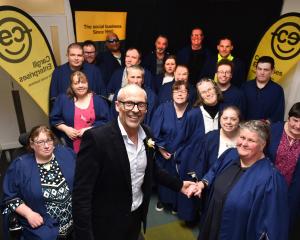
Criminology and gender studies senior lecturer Fairleigh Gilmour said the programme started in the second semester last year with her first year sociology paper being offered.
It was the only in-person university paper being taught in prisons in New Zealand, although Canterbury and Massey universities offered distance learning, she said.
Dr Gilmour believed people should have equal access to education and it was the role of the university to facilitate that.
As a criminology lecturer she was highly aware that education had an important role to play in reducing reoffending, and reoffending rates were closely tied to levels of educational achievement.
The prison had been supportive and had put a lot of work in to get the pilot programme off the ground, as had her colleagues from the sociology and politics departments, and the university administration more broadly, Dr Gilmour said.
It was important to offer in-person teaching inside the wire, as for her classes in particular, the ability to talk in person and share ideas contributed to learning outcomes.
Hopefully now that the processes had been established, things would become streamlined so that more papers could be offered in the future, she said.
Otago Corrections Facility learning interventions delivery manager Sherie Lucke said the best thing about the programme so far had been how well the students had achieved.
Last year four inmates took Dr Gilmour’s paper, three of whom passed with A-grades.
The men were very proud of themselves. How well they had done took them by surprise.
Feedback from teaching staff indicated they took the classes seriously, arrived well prepared and did the required work away from class.
The pilot was a great opportunity to build a relationship with the university and she was optimistic about its future although things were being taken step by step at the moment.













